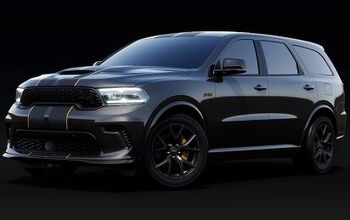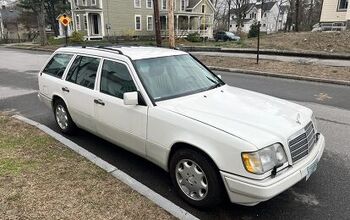New or Used? : How Much Is MPG Really Worth?
Dear Steve:
My wife and I finally bought a brand new Honda Accord. She loves it, and I now have one less worry in my life.
With that one less worry though comes two more things, in the form of two similarly sized cars. At least one of which I no longer need.
I just don’t know if I need it now that the Civic is available. Here’s the thing. The Civic gets far better fuel economy than the Mazda 3 which has averaged only about 24 mpg. Now that my wife has a new car that will also become our road trip vehicle, I only need my daily driver to serve as a commuter car. My round-trip commute is 47 miles a day and I just don’t see myself ripping up the asphalt with the Mazda 3 while listening to NPR. So I’m thinking the Civic may be the better long-term bet. Even though I absolutely love the hell out of that Mazda.
Another random thought came to me while adding up the resale numbers. Should I perhaps sell both vehicles and maybe, just maybe, buy a new one? The Subaru Impreza, Hyundai Elantra and Kia Forte would be a great match and if I sell both vehicles, the cost difference between a new car and a used one may only be a couple thousand bucks.
So what should I do? Sell the Civic? Sell the Mazda 3? Buy an Impreza? Or should I just keep both used cars?
Steve Says:
The #1 mistake I see folks do in their car buying decisions is overstate the importance of gas consumption.
Enthusiasts want fast… and they want their MPG.
Commuters want comfort… and they want their NPR… and their MPG.
Retirees want luxury… and plenty of unused horsepower, and they want their MPG.
Each one of these sub-species in the automotive buying world has to deal with two big problems related to this want.
The first is that high MPG doesn’t always equate to high personal satisfaction with the vehicle. Let’s take your two cars for example.
The 2011 Mazda 3 has an enthusiast bent to it, and your list of alternatives seem to point to the desire to have a car with great handling and solid performance.
As for the 2003 Honda Civic? My wife kept one for three years. It’s a perfectly pleasant vehicle, and like most cars given that level of mild praise, it’s definitely more aimed towards the non-enthusiast crowd. If all things were equal, the Mazda 3 would likely be your easy choice.
The second problem with putting gas consumption on that highest pedestal of want, is that gas consumption represents a very minor cost when two vehicles of comparable size and engine displacement are pitted against each other.
Let’s say you kept these two vehicles as your commuter for the next 8 years and 120,000 miles. The Mazda 3 averages 24 mpg during that time (your average), and the Honda Civic averages 30 mpg (my wife’s average).
In that time, the Mazda will consume 5,000 gallons of gas, while the Civic consumes 4,000 gallons. If the average price of gas is $3,50 during that time, you end up with $3500 extra in overall gas cost. This equates to $437.50 a year or a little less than $1.80 a commuting day.
Still with me? Good. Because that level of difference can become a complete wash in the long run when you factor in repair costs to the older high mileage Civic. Maybe that will happen. Maybe not. Insurance, depreciation, resale value, opportunity cost may all sway this one way or the other. But the bottom line is this…
When you make this decision, the driving experience and the quality of the interior in particular should be the two biggest considerations. You will spend months of your life inside that car. So you need to raise ‘quality of life’ to the top of the list and gas consumption, far lower in the list of wants.
You love the Mazda, and like the Civic, and I’m willing to bet that the Mazda 3 hits those two quality of life check marks with a darker #2 pencil than the Civic. So sell the Civic and keep the Mazda. As for the list of new car alternatives, I don’t think any of them are worth the financial leap given that the Mazda 3 already hits your wants and needs. Good luck!
More by Steven Lang
Latest Car Reviews
Read moreLatest Product Reviews
Read moreRecent Comments
- Probert They already have hybrids, but these won't ever be them as they are built on the modular E-GMP skateboard.
- Justin You guys still looking for that sportbak? I just saw one on the Facebook marketplace in Arizona
- 28-Cars-Later I cannot remember what happens now, but there are whiteblocks in this period which develop a "tick" like sound which indicates they are toast (maybe head gasket?). Ten or so years ago I looked at an '03 or '04 S60 (I forget why) and I brought my Volvo indy along to tell me if it was worth my time - it ticked and that's when I learned this. This XC90 is probably worth about $300 as it sits, not kidding, and it will cost you conservatively $2500 for an engine swap (all the ones I see on car-part.com have north of 130K miles starting at $1,100 and that's not including freight to a shop, shop labor, other internals to do such as timing belt while engine out etc).
- 28-Cars-Later Ford reported it lost $132,000 for each of its 10,000 electric vehicles sold in the first quarter of 2024, according to CNN. The sales were down 20 percent from the first quarter of 2023 and would “drag down earnings for the company overall.”The losses include “hundreds of millions being spent on research and development of the next generation of EVs for Ford. Those investments are years away from paying off.” [if they ever are recouped] Ford is the only major carmaker breaking out EV numbers by themselves. But other marques likely suffer similar losses. https://www.zerohedge.com/political/fords-120000-loss-vehicle-shows-california-ev-goals-are-impossible Given these facts, how did Tesla ever produce anything in volume let alone profit?
- AZFelix Let's forego all of this dilly-dallying with autonomous cars and cut right to the chase and the only real solution.


































Comments
Join the conversation
Original Poster here. I currently own a 2011 Mazda 3 hatchback - with 2.5 liter engine We are leaning toward selling the Civic and use the money toward paying down credit card debt (actually eraticate most, if not all of it) and see about trading mine in toward a 2014 Mazda3 iTouring - 2.0 rather than the 2.5 - don't need all the bells and whistles that mine has given the new Accord has become are goto car for weekend road trips. Test drove it pretty hard and was averaging 36mpg, roughly 10mpg better with very little loss in power (enjoy the steering feel and handling above straight-line performance anyways. Reduction of financing per month by $30 estimate along with insurance and fuel cost. Thanks for all the advice.
Smart move getting rid of the debt , did you test a 2013 as some have said very good deals on them good luck.